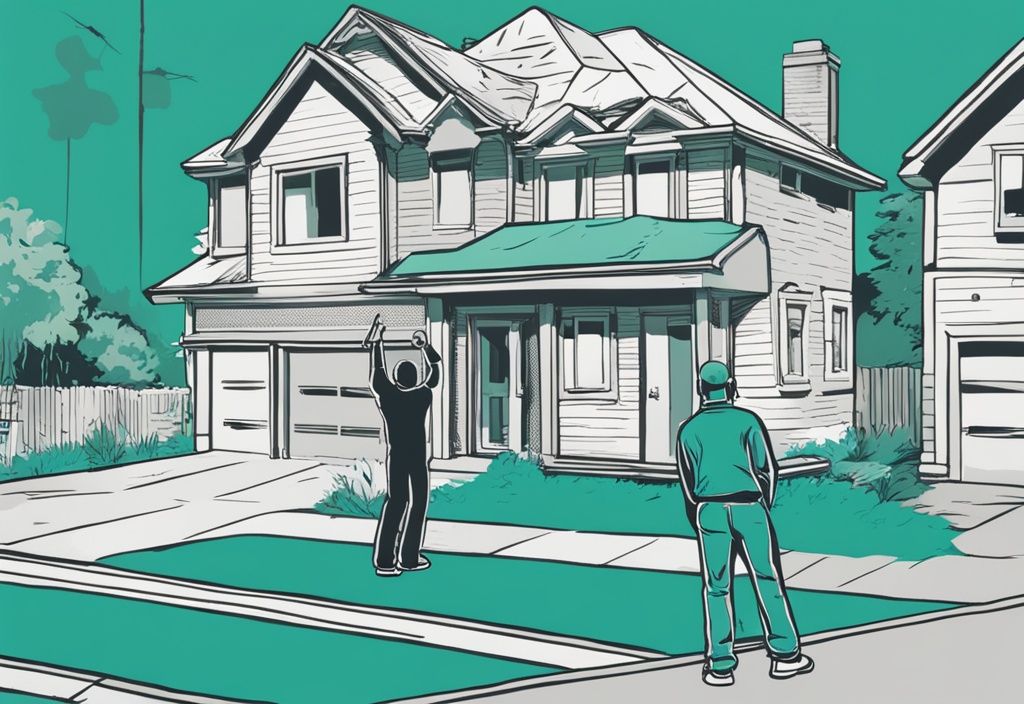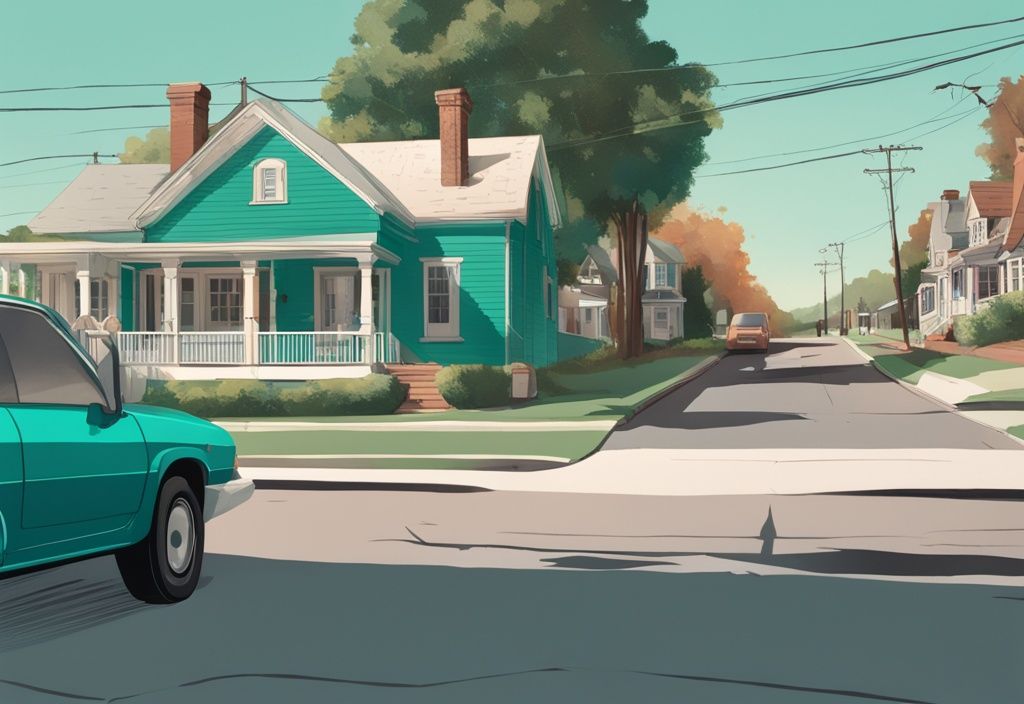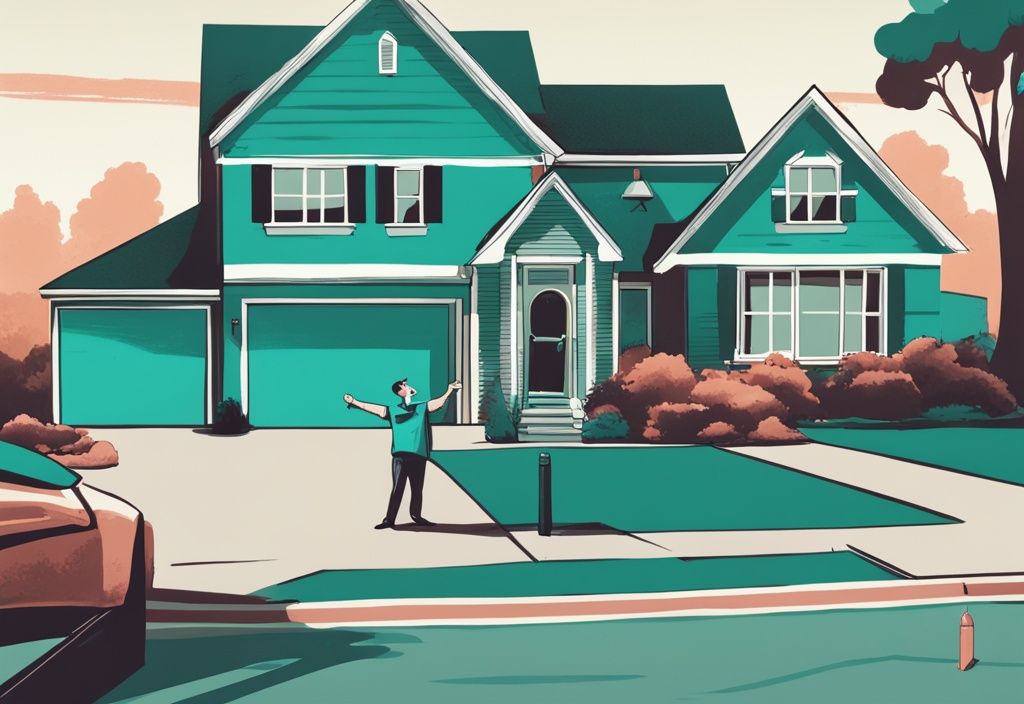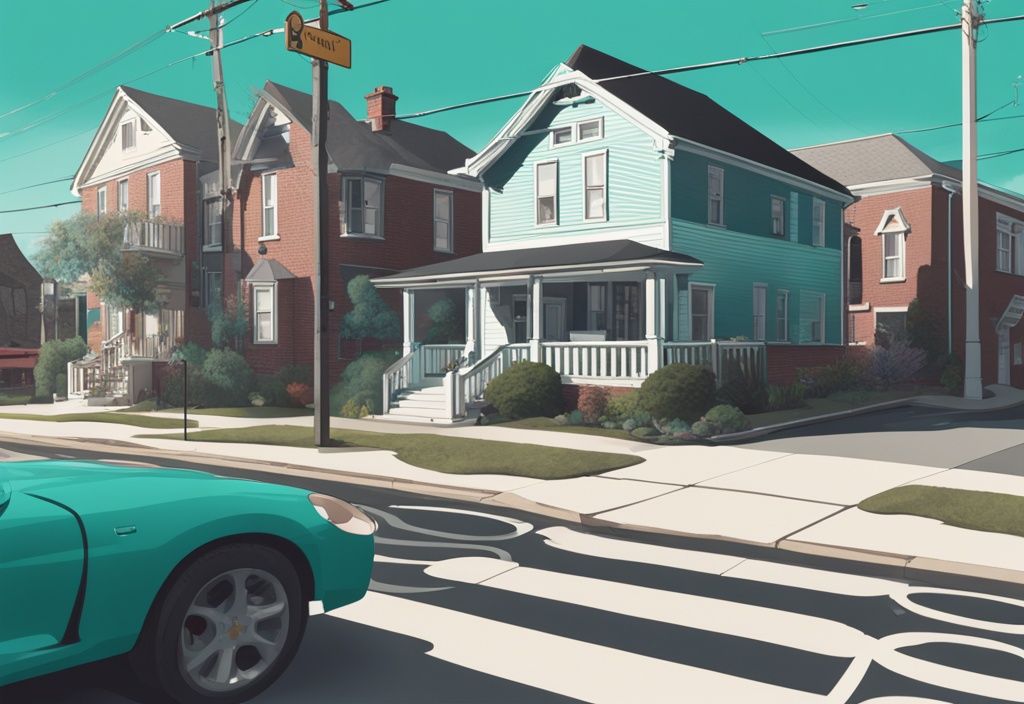Guide: Stop Someone Parking at Your House
Ever found yourself gritting your teeth at the sight of an unfamiliar car parked right in front of your house? It’s a common issue, but few know how to handle it effectively. Here’s a secret: there are legal and practical ways to reclaim your curb space.
In this article, we’ll explore a range of strategies, from a friendly chat with the offender to getting local authorities involved. I’ll guide you step-by-step, ensuring you have the tools to restore order on your street.
So, ready to learn how to stop someone parking in front of your house? Let’s dive in and bring back the peace and harmony to your neighborhood.
Understanding the Legalities of Street Parking
Is It Legal for Someone to Park in Front of Your House?
Parking on a public street is generally legal, meaning anyone can park in front of your house. This can be frustrating, especially if the same vehicle is consistently occupying the space. However, it’s important to understand that public streets are accessible to all, and unless there are specific restrictions, you can’t legally prevent someone from parking there.
The legality of street parking varies widely by city and state, and for specific regulations in your area, you can refer to resources provided by local authorities, such as Clark County Public Works, which addresses common questions and complaints about parking in residential areas. Local governments often have specific rules and regulations that dictate where and how long vehicles can be parked. To find out the specific rules in your area, you should check with your local government or municipality. They can provide information on any parking restrictions or permits that may apply to your neighborhood.
In certain areas, there are specific laws that make it illegal to block a neighbor’s driveway. For example, in Merced, CA, it’s against the law to park in a way that obstructs access to someone’s driveway. Violations of such laws can result in fines or even towing of the offending vehicle. Therefore, it’s crucial to be aware of both general and specific parking laws in your locality to understand your rights and options.
Local Ordinances and HOA Rules
Local ordinances and Homeowners Association (HOA) rules can also play a significant role in regulating street parking. These rules might indirectly address the issue of unwanted parking by imposing restrictions on long-term street parking or setting limits on the number of vehicles that can be parked on the street.
It’s essential to investigate these local ordinances or HOA rules to see if there are any provisions that can help you manage the parking situation in front of your house. For instance, some communities have rules against parking the same vehicle on the street for more than a certain number of days. Others may require vehicles to be moved periodically to avoid fines.
However, it’s important to note that legal and HOA restrictions do not always provide a complete solution to the problem. Even if there are rules in place, enforcement can be inconsistent, and not all neighbors may comply voluntarily.
To effectively address the issue, check for local parking laws and community rules that may apply to your situation. Understanding these regulations can help you take informed steps to manage and potentially reduce unwanted parking in front of your house.
Practical Solutions to Stop Unwanted Parking
Dealing with the frustration of someone parking in front of your house? Here are some practical solutions to help you reclaim your space and maintain a peaceful neighborhood.

Using Your Own Driveway and Garage
One effective way to address the issue of unwanted parking in front of your house is by maximizing the use of your own driveway and garage. By doing so, you not only free up street parking for others but also set a positive example for your neighbors. If your household can accommodate all vehicles within your property, it reduces the likelihood of others needing to park in front of your home. Encouraging family members and guests to utilize your driveway and garage can significantly alleviate the problem and promote a more organized parking situation in your neighborhood.
Installing “No Parking” Signs
Another practical solution is to consider installing “No Parking” signs. Before proceeding, it’s crucial to check with local regulations to ensure that such signs are permitted in your area. If allowed, these signs can serve as a clear deterrent to those considering parking in front of your house. Make sure that any signage you install complies with local laws to avoid potential legal issues. Properly placed and legally compliant “No Parking” signs can effectively communicate your parking preferences to neighbors and visitors, thereby reducing unwanted parking in front of your residence.
Requesting a Designated Parking Zone
For a more structured approach, explore the option of requesting a designated parking zone from local authorities. This can be particularly useful if the issue of unwanted parking is persistent and widespread in your neighborhood. Petitioning for a residential parking zone, which restricts parking to residents only, can provide a long-term solution. Start by gathering support from your neighbors and presenting a collective request to your local government. If approved, this measure can significantly limit non-resident parking and ensure that your street remains accessible primarily to those who live there.
Approaching the Neighbor Diplomatically
Polite Conversations and Requests
Effective communication and mutual respect play crucial roles when addressing the issue of how to stop someone parking in front of your house. Imagine this: you’re sitting down with a neighbor over a cup of coffee, calmly explaining your concerns. Highlight the inconvenience caused by their parking habits.
Consistency is key here. Even if past polite dialogues only brought temporary relief, don’t give up. Politely request that they consider parking in front of their own house. Emphasize the importance of maintaining a harmonious neighborhood environment. This approach not only fosters goodwill but also increases the likelihood of a positive outcome.
Writing a Letter to Address the Issue
If direct confrontation feels uncomfortable, writing a thoughtful letter can be an effective alternative to address how to stop someone parking in front of your house. Clearly articulate your concerns, explaining how their parking behavior affects you and others in the neighborhood.
Ensure your tone remains polite and respectful to avoid escalating the situation. A well-crafted letter demonstrates your willingness to resolve the issue amicably. This can often prompt a more considerate response from your neighbor. By maintaining a respectful dialogue, you create a foundation for ongoing positive interactions and a more cooperative living environment.
Involving Authorities If Necessary
If you’re dealing with a persistent issue of unwanted parking in front of your house, involving authorities might be the best course of action. This section covers two main approaches: contacting local authorities and seeking mediation services.
Contacting Local Authorities
When someone keeps parking in front of your house, it can be more than just an annoyance. If the vehicle is parked illegally or stays there for too long, it might be breaking local parking laws. Local law enforcement can step in here. They can issue tickets or even tow the vehicle if it’s violating regulations. This not only solves the immediate problem but also discourages future violations. Make sure you have documented evidence of the parking issue. Photos or videos can be very helpful. This will support your case and help authorities respond more quickly.
Seeking Mediation Services
Sometimes, talking to your neighbor doesn’t solve the problem. That’s where mediation services come in. Mediation involves a neutral third party who helps you and your neighbor discuss the issue and find a solution. This can keep things friendly while still addressing the problem. You might involve a community association or a local government representative to mediate. Mediation is often less confrontational than legal action and can lead to a solution that works for both parties. This way, everyone feels heard and respected.

Documenting the Issue
When dealing with the problem of how to stop someone parking in front of your house, documenting the issue is a critical first step. This section will cover two effective methods: keeping a record of parking incidents and using security cameras for evidence.
Keeping a Record of Parking Incidents
Maintaining a detailed record of parking incidents is crucial when figuring out how to stop someone parking in front of your house. By documenting each occurrence, you create a tangible history that can be used as evidence if the situation escalates.
Start by keeping a log that includes the date, time, and a brief description of each incident. Note any specific details, such as the make and model of the vehicle, the license plate number, and the duration it remained parked. This log will be invaluable if you need to present your case to local authorities or a mediation service.
Using Security Cameras for Evidence
Installing a security camera is a proactive step in deterring unwanted parkers and gathering concrete evidence. Modern security cameras are relatively affordable and easy to set up.
Position the camera to capture clear footage of the street area in front of your house.
The presence of a camera can act as a deterrent, discouraging people from parking inappropriately. If the problem persists, the recorded footage can serve as irrefutable evidence, supporting your claims when seeking assistance from local authorities or legal counsel. For more information on how you can use recorded footage, you may want to check out our guide on requesting video footage from a store.
This approach is particularly effective in how to stop someone parking in front of your house.
Long-Term Solutions to Prevent Parking Issues
Advocating for Community Rule Changes
To effectively address the issue of unwanted parking in front of your house, advocating for changes in community parking rules can be a powerful long-term solution. Start by assessing the current parking regulations within your neighborhood. If these rules are inadequate or unsatisfactory, consider initiating a campaign to amend them.
Organize a neighborhood meeting where you and other concerned residents can discuss parking etiquette and propose new regulations. Highlight the importance of mutual respect and the benefits of clear, enforceable parking rules. Engaging your community in an open dialogue can foster a collaborative environment, making it easier to implement changes that reflect the needs and preferences of the majority.
Petitioning for a Residential Parking Zone
Another strategic approach to prevent parking issues is to petition for a residential parking zone. Such zones restrict parking to residents only, significantly reducing the likelihood of non-residents occupying the spaces in front of your house. Begin by researching whether this option is available in your area. Local governments often have specific criteria and processes for establishing residential parking zones.
Once you’ve confirmed the possibility, gather support from your neighbors. A strong, unified petition can demonstrate to local authorities the community’s demand for a residential parking zone. Collect signatures and provide a clear rationale for why this change is necessary, emphasizing how it will improve safety, accessibility, and overall neighborhood harmony.

FAQ
Can I legally stop someone from parking in front of my house?
– Generally, no, as parking on a public street is legal. However, specific local laws or HOA rules may apply. Check with your local government or HOA for any applicable restrictions.
What should I do if polite requests don’t work?
– Document the issue thoroughly. Seek mediation services to help resolve the conflict. If necessary, involve local authorities to discuss possible solutions and ensure compliance with local laws.
Are there any legal actions I can take?
– Consult a lawyer to understand your rights and potential legal actions. Law enforcement can be contacted if the vehicle is violating parking laws, such as blocking a driveway or exceeding time limits.
How can I involve local authorities in resolving the issue?
– Contact local authorities to discuss potential solutions, especially if safety or access is compromised. Law enforcement may issue tickets or tow vehicles if they are parked illegally.
What are some long-term solutions to prevent parking issues?
– Advocate for community rule changes and petition for a residential parking zone. Explore shared parking agreements with neighbors to ensure a more organized and cooperative parking environment.
Conclusion
Addressing the issue of how to stop someone parking in front of your house involves a multi-faceted approach. First, understanding the legalities is crucial. Parking on public streets is generally permitted, but local ordinances and HOA rules can offer specific guidance. It’s essential to familiarize yourself with these regulations to avoid any legal missteps.
Practical solutions can also be effective. Utilizing your driveway and garage can free up street parking for others. Installing “No Parking” signs, if allowed by local laws, can serve as a deterrent. You might also consider requesting a designated parking zone from local authorities, which can provide a more formal solution to the problem.
Diplomatic approaches often yield the best results. Engaging in polite conversations with the neighbor can sometimes resolve the issue amicably. If direct conversation is uncomfortable, writing a respectful letter can also be an effective strategy. Persistence and neighborly respect are key in these interactions.
If these methods fail, involving authorities may become necessary. Contacting local law enforcement can address illegally parked vehicles or those left for extended periods. Additionally, seeking mediation services can provide a neutral ground for resolving the conflict.
Documenting the issue is another essential step. Keeping a record of parking incidents and using security cameras can provide evidence if further action is needed. This documentation can be invaluable if the situation escalates to involve legal proceedings.
Lastly, long-term solutions should be considered. Advocating for community rule changes or petitioning for a residential parking zone can prevent future issues. Community involvement and collective action can lead to a more harmonious neighborhood environment, ensuring that parking disputes are minimized and everyone’s needs are respected.
By integrating these strategies, you can effectively address the challenge of unwanted parking and foster a cooperative and respectful community atmosphere.
I’m James Albright, a home security expert with over 15 years of experience, and I’m passionate about helping families protect what matters most. After serving as a police officer, I transitioned to security consulting to share my hands-on knowledge and practical tips. My mission is to make home security simple and reliable by offering clear, no-nonsense advice and easy-to-follow guides. When I’m not reviewing the latest security tech or writing, I’m out in the community leading neighborhood watch programs and, most importantly, keeping my own family safe.





Post Comment